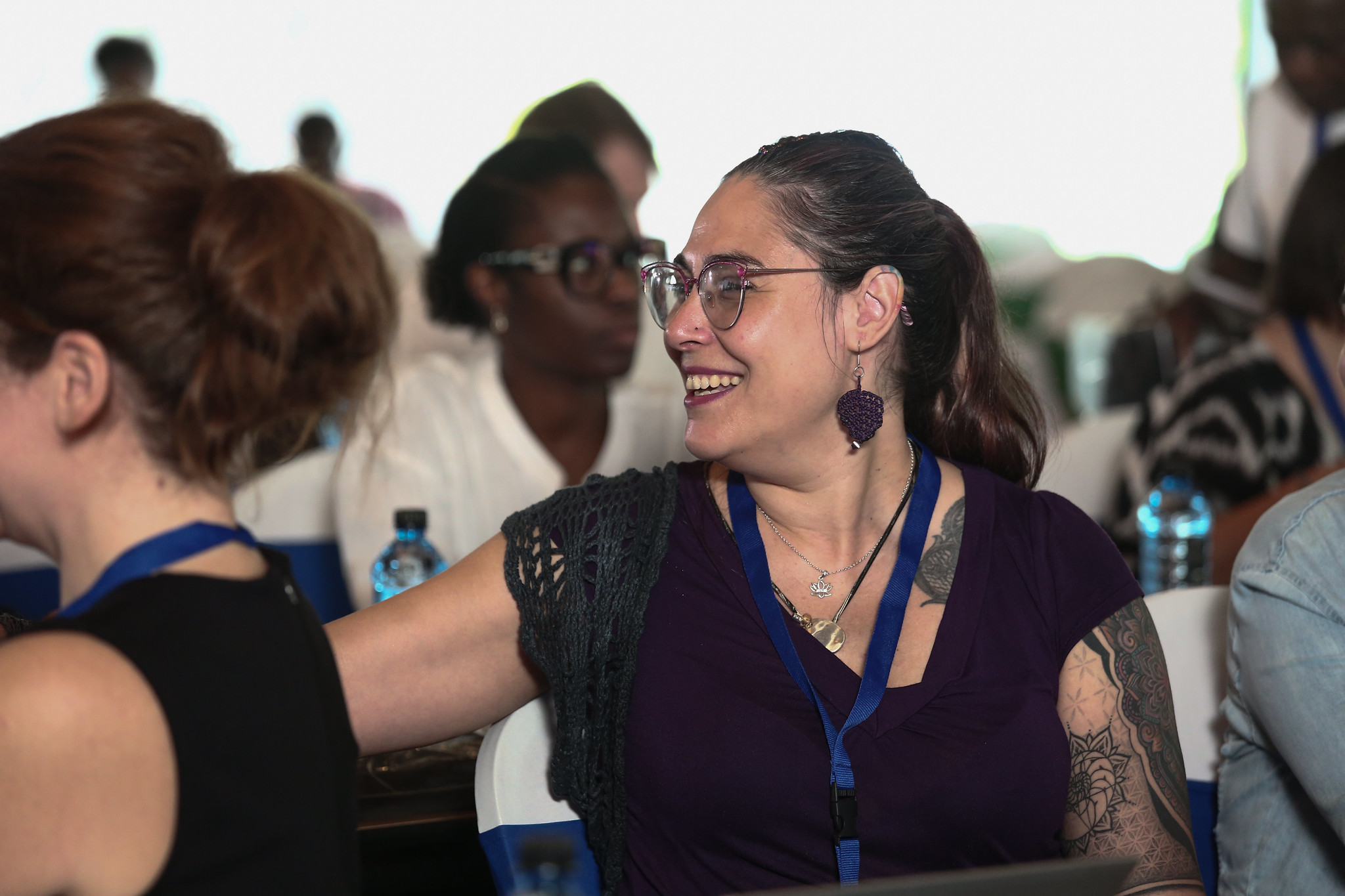Building Together

The distance between Buenos Aires and Mombasa is 10,479 kilometers, yet the most practical flight route requires a detour through New York, doubling the journey. Why is it cheaper to fly twice the distance? And why must we detour north to connect south?
This isn’t just about flight logistics but about larger disconnections in global systems—economic, political, and technological. Reflecting on this during a 50-hour round trip to Mombasa, I found these questions intertwined with my work as a cooperative member in the tech sector and as a Latin American woman.
Digital Africa Rising, the 10th Platform Cooperativism Consortium conference, brought together over 500 students, researchers, cooperators, and policymakers in Mombasa, Kenya. The event fostered dynamic exchanges, new collaborations, and fresh perspectives on cooperativism and technology.
For me, the journey wasn’t just physical. Thanks to scholarships from the ICDE at The New School, I shared insights from Argentina’s tech cooperatives and explored platform cooperatives’ potential in regions like ours. Yet, the diversity in the room underscored a challenge: how do we align such varied experiences into a cohesive agenda for collaboration?
Farther from home than ever, I was struck by the disconcerting familiarity of the challenges before me. Grassroots economies’ resilience, colonialism’s enduring scars—though geographically distant, these struggles are profoundly interconnected. Solidarity economies, rooted in pre-colonial traditions, persist on the margins, overshadowed but not extinguished. Grassroots innovations tackle urgent needs with creativity but remain chronically underfunded, battling systemic neglect.
Meanwhile, many countries in the Global South serve as pools of cheap labor for transnational platforms exploiting weak regulatory frameworks. Imported technologies, designed with little regard for local contexts, often obliterate cultural identities rather than meeting genuine needs. Across these regions, there’s a shared yearning to build local digital infrastructures that serve people rather than markets—a daunting but vital endeavor.
These challenges aren’t confined to the Global South. They resonate globally, reminding us that struggles in one region are inextricably linked to the rest of the world.
At the University of Quilmes, where I taught digital technologies and ICTs, these inequalities were visible daily. Many students, grassroots women working in Argentina’s popular economy—encompassing informal and community-based labor—approached computers with fear. Though adept with smartphones, they struggled to transfer those skills to other devices.
This wasn’t a failure of intellect but a product of systemic inequality: lack of access to computers, informal jobs leaving no time for learning, and an education system failing to meet them where they were. The result was a deeply internalized belief in their own limitations.
My colleagues and I debated whether to focus on basic digital literacy or broader issues like free software and critical perspectives on technology. The answer wasn’t either/or; it was both. Bridging this gap isn’t just a pedagogical challenge—it’s a political one.
Today’s inequalities are extensions of colonial legacies, reinforced by automated systems. Couldry and Mejias call this “data colonialism,” where the exploitation isn’t of land or labor but our digital lives—clicks, preferences, and movements, quantified for capital.
Colonialism—old or new—relies on a narrative. Today, it transforms values like community and connection into tools for commodification. This is why Global South countries must resist chasing the illusion of digital transformation as defined by the Global North.
In Mombasa, the immense potential of platform cooperatives became clear. Initiatives like Chasqui, an Argentinian e-commerce platform cooperative, and WISE, a Kenyan worker cooperative advancing solar energy, show what’s possible when communities take ownership of their futures. These projects share common elements: cooperative principles, thoughtful technology integration, trust networks, academic partnerships, local government support, and women’s leadership.
The formula isn’t simple or universally replicable, but the building blocks exist. What’s missing is a unified vision—a South-to-South collaboration fostering technology that reflects our values, serves our priorities, and remains free from external domination. This vision is where true self-determination takes root.
As I returned home, I felt both the weight of these struggles and the hope of meaningful alternatives. The question isn’t whether we can build solutions; it’s whether we can build them together.
More about the author